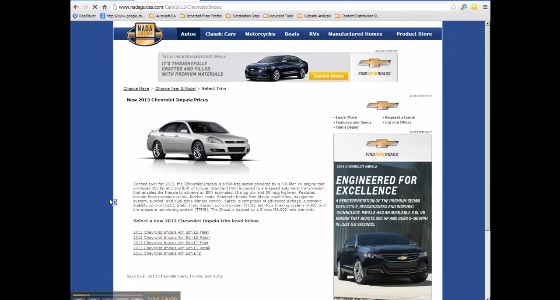Factors That Affect Car Invoice Pricing: A Comprehensive Guide

When buying a car, understanding invoice pricing is an essential part of the process. The invoice price is the amount the dealership pays the manufacturer for the vehicle. Knowing the invoice price can help you negotiate a fair deal and avoid overpaying for your new car.
To learn more about the factors that affect car invoice pricing, click here to read our informative article. This comprehensive guide will explore the most critical factors that impact car invoice pricing and provide the information you need to make an informed decision when purchasing a vehicle.
Manufacturer Suggested Retail Price
The price the manufacturer suggests the dealership selling the car is known as the Manufacturer Suggested Retail Price. The MSRP should be distinct from the invoice price, and dealerships frequently sell cars for less than the MSRP to remain competitive. However, the MSRP can serve as a starting point for discussions, and knowing it will enable you to decide how much of a discount to demand.
Dealer Holdback
The dealer holdback is a percentage of the invoice price the manufacturer pays back to the dealership after the car is sold. This amount can vary depending on the manufacturer, but it’s usually around 2-3% of the invoice price. While the dealer holdback is not negotiable, it’s important to be aware of it because it can affect the dealership’s willingness to negotiate other factors, such as the sale price or financing terms.
Dealer Incentives And Rebates
Dealerships often receive incentives and rebates from the manufacturer for selling certain models or reaching sales goals. These incentives and rebates can vary from month to month and can be significant, sometimes up to several thousand dollars per vehicle. While these incentives and rebates do not directly affect the invoice price, they can be used to negotiate a lower sale price, and it’s essential to be aware of them when negotiating.
Supply And Demand
Car pricing is heavily influenced by supply and demand, just as in any other industry. Dealerships may be less ready to haggle over price if there is significant demand for a specific model since they know they can sell the car for more money. In contrast, if there is little demand for a model, dealers could be more amenable to haggling over price to close a purchase. You may negotiate a reasonable price by knowing the availability and demand for the particular make and model you want.
Vehicle Features And Options
The price of a vehicle can vary significantly based on its features and options. More expensive options, such as a premium sound system or leather seats, can significantly increase the price of the vehicle. It’s essential to consider which features are essential to you and which you can do without. Additionally, it’s important to note that the invoice price can vary based on the vehicle’s options, so clarify this when negotiating.
Location
The location of the dealership can also impact the invoice price. Dealerships in different regions may have different overhead costs, such as rent or labor, affecting their pricing. Additionally, dealerships in areas with a higher cost of living may be less willing to negotiate on price because they know customers are willing to pay more. Be aware of the dealership’s location and how it may affect pricing.
Financing And Leasing Terms
Financing and leasing terms can also impact the invoice price. Dealerships may offer different interest rates or lease terms, which can affect the overall cost of the vehicle. Additionally, dealerships may offer incentives for financing or leasing through their preferred lender, so consider all your options when negotiating.
Conclusion
When purchasing a new car, understanding invoice pricing is an important part of the process. By being aware of the factors that affect car invoice pricing, you can negotiate a fair deal and avoid overpaying for your new vehicle. From the MSRP to dealer incentives and rebates, supply and demand, vehicle features and options, location, and financing and leasing terms, there are many factors to consider when evaluating invoice pricing.
To get the best deal possible, it’s essential to do your research and be prepared when negotiating with the dealership. Use online resources to research the make and model you’re interested in and compare pricing between different dealerships. Be sure to understand the factors affecting invoice pricing and use that knowledge to negotiate a fair sale price.
It’s also crucial to be aware of any other costs or expenses that can be tacked on top of the sale price, such as taxes, paperwork, or dealer fees. Be cautious about understanding all fees before approving a transaction because they can rapidly mount up and have a major influence on the ultimate cost of the vehicle.
In conclusion, purchasing a new car can be a significant investment, and it’s important to take the time to understand invoice pricing and negotiate a fair deal. By being aware of the factors affecting invoice pricing and researching, you can save money and drive away with a new car that meets your needs and budget.



